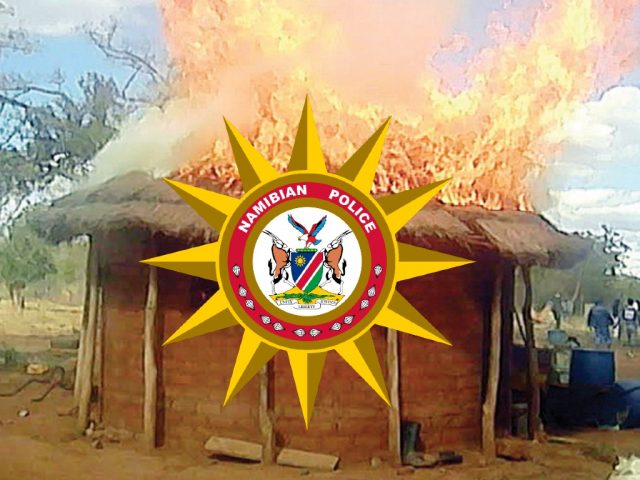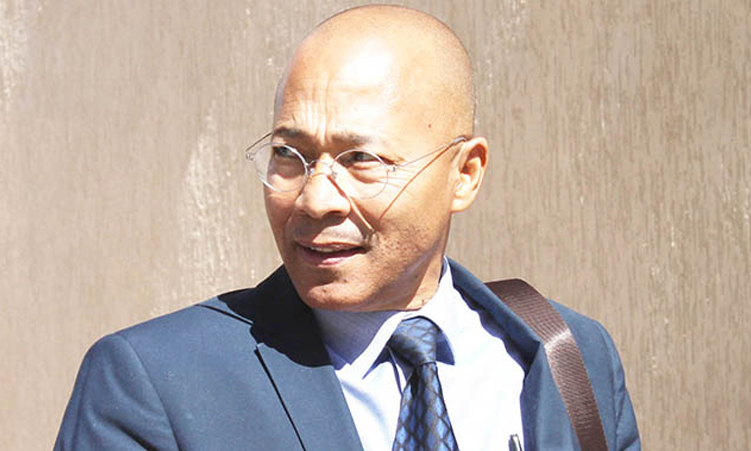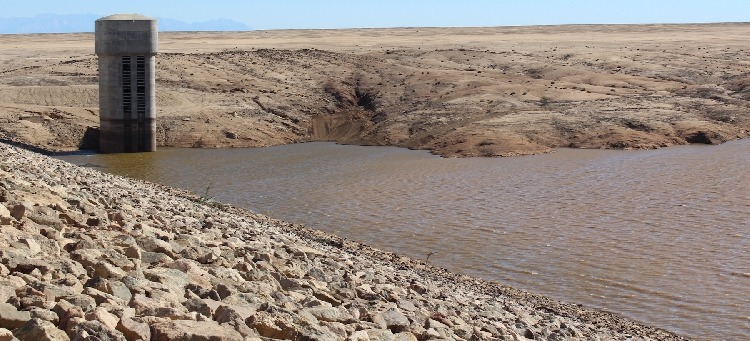DUBBED the ‘third wave’, the African Renaissance still has to make its debut on the continent.
First there was the decolonisation phase culminating in independence for many of the colonies in Africa. Then came the second which was characterised by civil wars, authoritarian rule and the one-party state – with very few bright spots here and there.But this phase culminated in some form of democratic rule albeit at varying degrees of development in Africa.Now, according some of our leaders and scholars, we are entering the third wave or epoch – the much-hyped African Renaissance.But the critic might ask: what is this African Renaissance (read Re-nonsense)? Is it one of those buzzwords that come off the lips of every newly elected African leader which has a familiar short shelf life, or is it something more substantive and enduring than just mere rhetoric? These questions are relevant because, as it is now, the whole concept seems to be the brainchild of one person – South African President Thabo Mbeki.He is the one who gave it some currency and no wonder it is now loosely used in many forums in that country.Not only that.There is now The Centre for African Renaissance Studies at the University of South Africa – the name says it all.In addition, a host of organisations that go by that name have also sprung up.This Centre, I’m sure, would be the envy of many other similar institutions judging by the range of programmes, courses and other activities on their menu.The African Renaissance is thus slated as a ‘post-colonial’ and ‘post-modern’ project whose purpose is to spur and eventually take the continent to greater heights.But my feeling, however, is that the concept has not taken root in many part of the continent.And this shouldn’t surprise anyone.There is the question of what it is.And how does one go about operationalising it? This is not a concept like socialism, feminism, capitalism, environmentalism, anarchism or any of the other ‘isms’.I would even be hard-pressed to call it a concept, let alone a paradigm.In its original European context it simply referred to a linear period, era or epoch.Thus one could speak of the Dark Ages, the Enlightenment or the Renaissance etc.So, these were historical stages in the development of Western societies.But Mbeki has imbued it with a political and philosophical meaning perhaps surpassing its modest origin and meaning.It is seen as a historical moment where Africans are called upon to end wars, poverty, corruption, elitism and violence against women and children.The Renaissance is also seen as movement of taking Africa to greater heights by raising the economy and thus leading to a higher standard of living for its citizens.The Mbekian conception of the Renaissance also includes things like social cohesion and stability and the broadening and deepening of the democratic project.What Mbeki, and others, are putting forward then is a vision of Africa’s rebirth and resurgence.How this is to be achieved might prove to be problematic.Although some people have argued that language does construct its own political, social, cultural and ideological context.And that this has significant public consequences.Raising the question of whether the Renaissance-talk has raised the consciousness of the broader section of the African population – are we talking and acting like the Renaissance man/woman? Or are we still trapped in some dark ages behavioural mode and thinking? The immediate answer to that is that it hasn’t.Or if it has, then people have become somewhat wary and perhaps insular to this kind of talk.After all, there is not much that is contained in the Renaissance package that has not been tried elsewhere or through some other ventures.Take the Pan-Africanist movement and its offshoots like the African Union as well as the various regional bodies that are supposedly devoted to the development of the continent.How do all these arrangements affect the lives of ordinary Africans out there, if at all? Maybe an example would explain what I mean.During one of my many trips to Ghana, I had to spend about two hours at Kotoka International Airport last year waiting for a visa stamp.This time around, my one year visa had expired and I didn’t have time to get it renewed at the Ghanaian Embassy in Monrovia but I knew that there was a section called “visa on arrival”.The immigration officers went about their business with the passport travelling from one office to the next.And one of the officers even threatened to put me back on the next flight to Liberia despite my mild protest that I always travelled there with a visa.I got it eventually.This was happening to a Commonwealth and AU national.Closer to home, Zimbabweans, for example, are deported en masse yearly from Botswana or South Africa back home.Or even Zambians and Angolans by the Namibian authorities.This goes a long way to show that most of the things we talk about need concerted human agency to actualise them otherwise they aren’t worth the paper they are written on.But at a much deeper level, the question to ask is whether we are witnessing progress or reversal in many countries on the continent? You have, for example, an AU that is at war with itself – Somalia vs.Ethiopia, Sudan vs.Chad, in addition to many other internal problems.Are we then collectively forging ahead or are some in our societies being left behind in the backwater of poverty and destitution? Are the leaders leading their folk to the promised land? Or have the leaders perhaps ceased to be leaders and have instead become mere managers? For me, Africa is currently caught in a neo-colonial web and living in an intellectual and technological back yard.So, it is still too early to pronounce the ‘African Renaissance’ as a post-colonial and post-modern project.It has yet to arrive.Then came the second which was characterised by civil wars, authoritarian rule and the one-party state – with very few bright spots here and there.But this phase culminated in some form of democratic rule albeit at varying degrees of development in Africa.Now, according some of our leaders and scholars, we are entering the third wave or epoch – the much-hyped African Renaissance.But the critic might ask: what is this African Renaissance (read Re-nonsense)? Is it one of those buzzwords that come off the lips of every newly elected African leader which has a familiar short shelf life, or is it something more substantive and enduring than just mere rhetoric? These questions are relevant because, as it is now, the whole concept seems to be the brainchild of one person – South African President Thabo Mbeki.He is the one who gave it some currency and no wonder it is now loosely used in many forums in that country.Not only that.There is now The Centre for African Renaissance Studies at the University of South Africa – the name says it all.In addition, a host of organisations that go by that name have also sprung up.This Centre, I’m sure, would be the envy of many other similar institutions judging by the range of programmes, courses and other activities on their menu.The African Renaissance is thus slated as a ‘post-colonial’ and ‘post-modern’ project whose purpose is to spur and eventually take the continent to greater heights.But my feeling, however, is that the concept has not taken root in many part of the continent.And this shouldn’t surprise anyone.There is the question of what it is.And how does one go about operationalising it? This is not a concept like socialism, feminism, capitalism, environmentalism, anarchism or any of the other ‘isms’.I would even be hard-pressed to call it a concept, let alone a paradigm.In its original European context it simply referred to a linear period, era or epoch.Thus one could speak of the Dark Ages, the Enlightenment or the Renaissance etc.So, these were historical stages in the development of Western societies.But Mbeki has imbued it with a political and philosophical meaning perhaps surpassing its modest origin and meaning.It is seen as a historical moment where Africans are called upon to end wars, poverty, corruption, elitism and violence
against women and children.The Renaissance is also seen as movement of taking Africa to greater heights by raising the economy and thus leading to a higher standard of living for its citizens.The Mbekian conception of the Renaissance also includes things like social cohesion and stability and the broadening and deepening of the democratic project.What Mbeki, and others, are putting forward then is a vision of Africa’s rebirth and resurgence.How this is to be achieved might prove to be problematic.Although some people have argued that language does construct its own political, social, cultural and ideological context.And that this has significant public consequences.Raising the question of whether the Renaissance-talk has raised the consciousness of the broader section of the African population – are we talking and acting like the Renaissance man/woman? Or are we still trapped in some dark ages behavioural mode and thinking? The immediate answer to that is that it hasn’t.Or if it has, then people have become somewhat wary and perhaps insular to this kind of talk.After all, there is not much that is contained in the Renaissance package that has not been tried elsewhere or through some other ventures.Take the Pan-Africanist movement and its offshoots like the African Union as well as the various regional bodies that are supposedly devoted to the development of the continent.How do all these arrangements affect the lives of ordinary Africans out there, if at all? Maybe an example would explain what I mean.During one of my many trips to Ghana, I had to spend about two hours at Kotoka International Airport last year waiting for a visa stamp.This time around, my one year visa had expired and I didn’t have time to get it renewed at the Ghanaian Embassy in Monrovia but I knew that there was a section called “visa on arrival”.The immigration officers went about their business with the passport travelling from one office to the next.And one of the officers even threatened to put me back on the next flight to Liberia despite my mild protest that I always travelled there with a visa.I got it eventually.This was happening to a Commonwealth and AU national.Closer to home, Zimbabweans, for example, are deported en masse yearly from Botswana or South Africa back home.Or even Zambians and Angolans by the Namibian authorities.This goes a long way to show that most of the things we talk about need concerted human agency to actualise them otherwise they aren’t worth the paper they are written on.But at a much deeper level, the question to ask is whether we are witnessing progress or reversal in many countries on the continent? You have, for example, an AU that is at war with itself – Somalia vs.Ethiopia, Sudan vs.Chad, in addition to many other internal problems.Are we then collectively forging ahead or are some in our societies being left behind in the backwater of poverty and destitution? Are the leaders leading their folk to the promised land? Or have the leaders perhaps ceased to be leaders and have instead become mere managers? For me, Africa is currently caught in a neo-colonial web and living in an intellectual and technological back yard.So, it is still too early to pronounce the ‘African Renaissance’ as a post-colonial and post-modern project.It has yet to arrive.
Stay informed with The Namibian – your source for credible journalism. Get in-depth reporting and opinions for
only N$85 a month. Invest in journalism, invest in democracy –
Subscribe Now!






